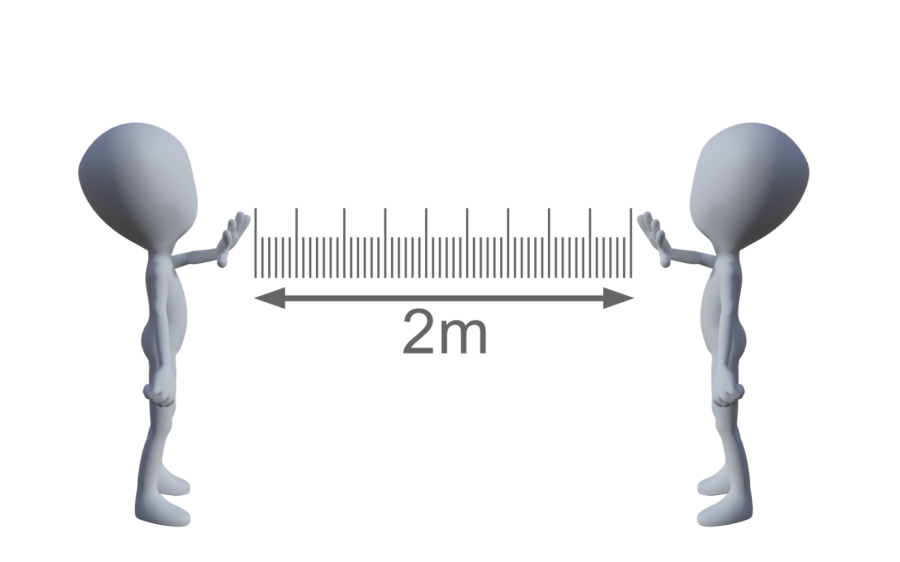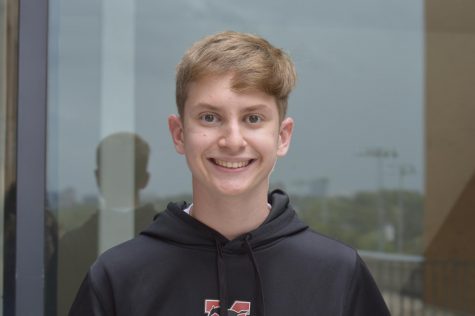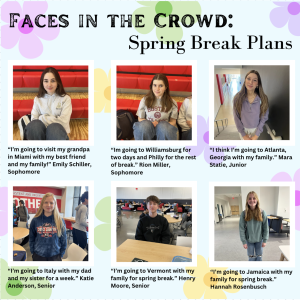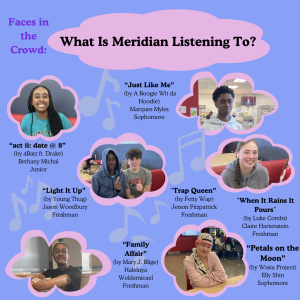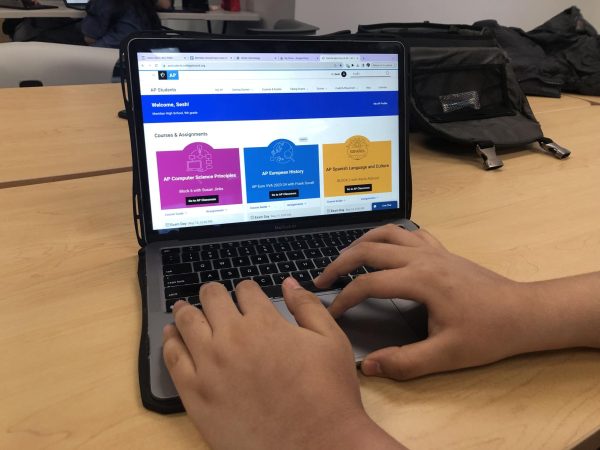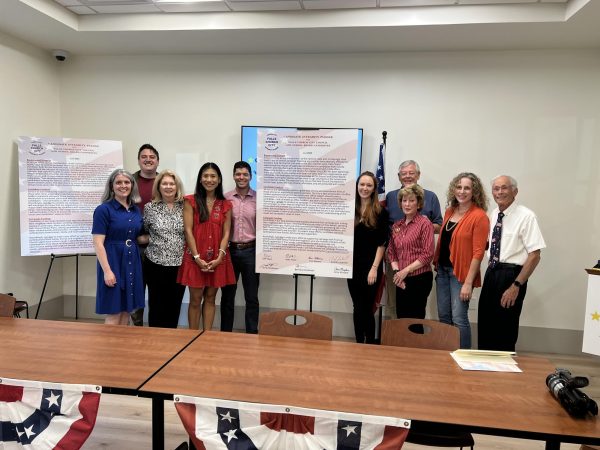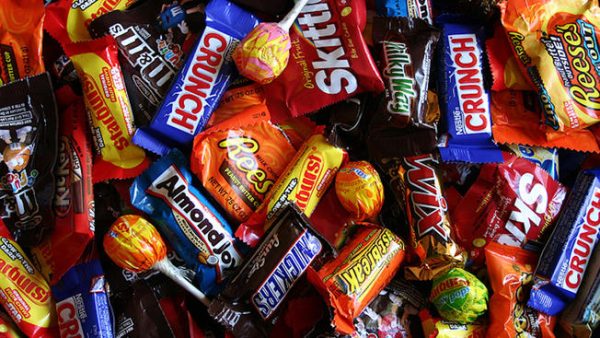Take social distancing seriously
Photo by Pete Linforth via Pixabay
Two cartoon figures stand two meters (six feet) apart to promote social distancing.
April 1, 2020
The coronavirus is here in Northern Virginia. As of April 1, more than 180,000 Americans have been diagnosed with COVID-19, and that number is skyrocketing. Some have gone to the extreme to prevent themselves from getting the disease, such as buying hand sanitizer for hundreds of dollars. However, the main way to prevent the spread of COVID-19 is to practice social distancing.
Social distancing is defined by the Center for Disease Control as staying at least six feet away from anyone not in your immediate, nuclear family. Practicing social distancing is regarded by many epidemiologists as the most effective way to avoid getting and spreading COVID-19.
Dr. Anthony S. Fauci has been the director of the National Institute of Allergy and Infectious Diseases since President Reagan. He is regarded on all sides of the political spectrum as one of the smartest epidemiologists in the world. Because of this, his warnings about the consequences of not taking necessary precautions, such as social distancing, are alarming.
“The kinds of mitigation issues that are going on right now, the things that we’re seeing in this country, this physical separation at the same time as we’re preventing an influx of cases coming in, I think that’s going to go a long way to preventing us from becoming an Italy,” Fauci said to CBS’s “Face the Nation.”
You, as a teenager, might not be vulnerable to COVID-19. You have most likely seen the statistic and have concluded that you won’t get the coronavirus, and even if you do, you won’t die of it. But even if you don’t get the virus, or even experience any symptoms of the virus, you can pass on the virus to others. You owe it to other people to not get them sick if they happen to be at-risk.
Doctors and nurses have been working around the clock every day to heal those with the coronavirus. They are at risk of contracting coronavirus as it is at their daily jobs. Especially in urban areas such as Washington, D.C., New York City, and Los Angeles, there is a shortage of doctors and nurses. Not practicing social distancing and therefore spreading the disease will push the U.S. hospital capacity to a breaking point, putting even more pressure on these medical professionals who are literally putting their lives on the line.
Social distancing isn’t easy. Humans are social creatures. We crave being near other people and stimulating our brains through interaction. However, we can’t allow the coronavirus to spread any more from person-to-person contact. It’s not fun. But it’s critical to public health.
Skip the trip to the Mall to see the cherry blossoms with your friends (trust me, they’ll be back). Don’t take advantage of the cheap flights to Florida so you can “quarantine” for the next month on a beach. Lives depend on it.


